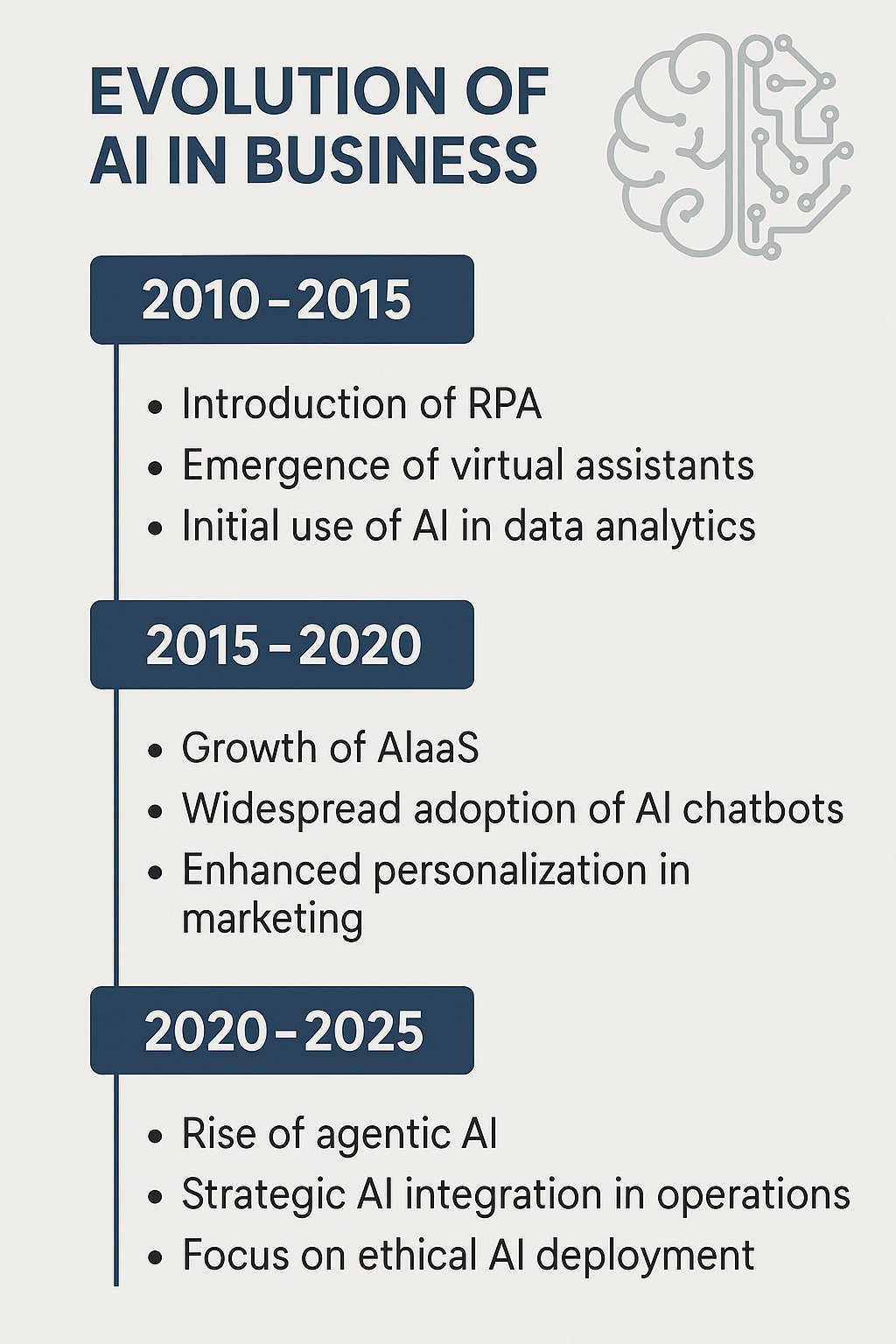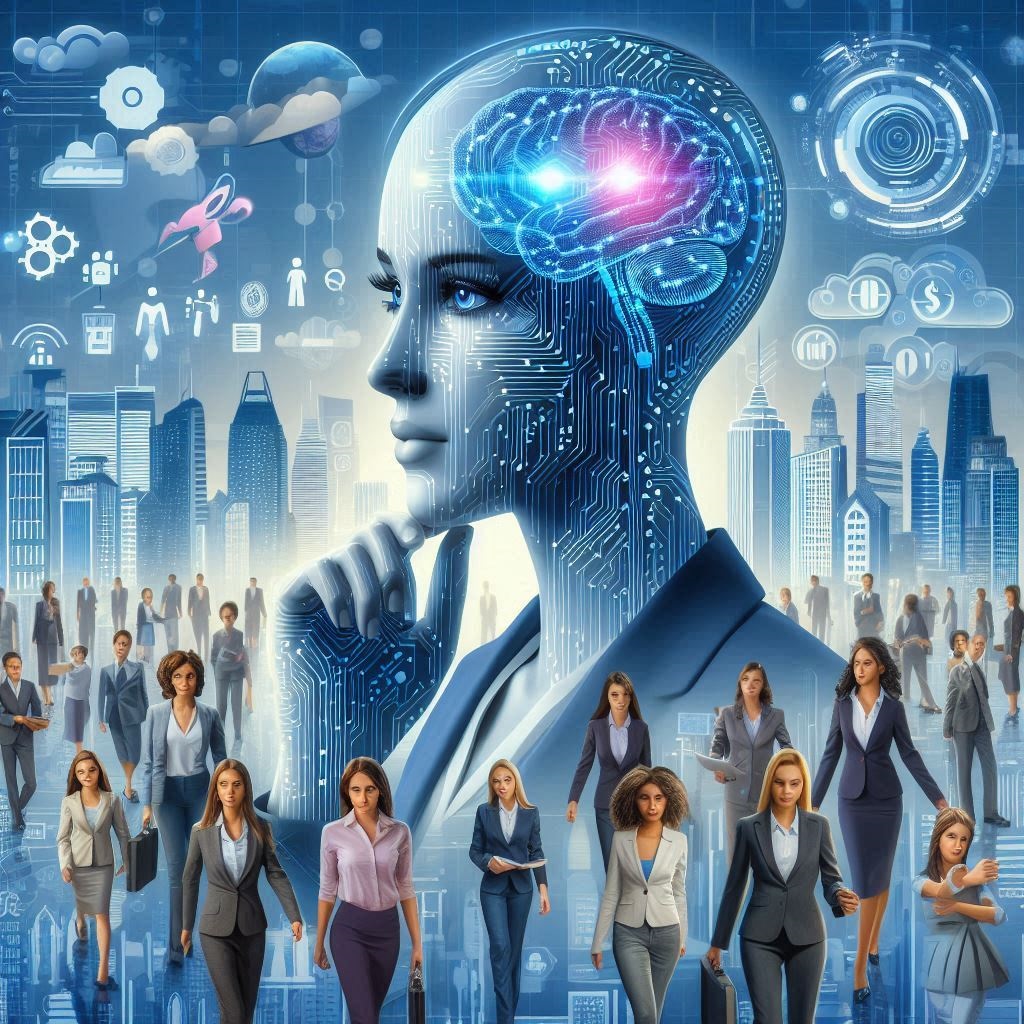Over the past 15 years, artificial intelligence (AI) has evolved from a niche technological concept to a central force driving business innovation and transformation. From early automation tools to today’s sophisticated agentic AI systems, businesses across various sectors have harnessed AI to enhance efficiency, decision-making, and customer experiences. This article explores the significant milestones and trends in AI’s integration into business from 2010 to 2025.
2010–2015: The Dawn of AI Integration
Emergence of AI in Business Operations
In the early 2010s, AI began making inroads into business processes:
-
Robotic Process Automation (RPA): Businesses started adopting RPA to automate repetitive tasks, leading to increased efficiency and reduced errors.
-
Virtual Assistants: The introduction of AI-powered virtual assistants, like Apple’s Siri (2011) and Amazon’s Alexa (2014), showcased AI’s potential in enhancing customer interaction.
-
Data Analytics: Companies began leveraging AI for data analysis, enabling better market predictions and customer insights.
Challenges Faced
Despite these advancements, businesses encountered challenges:
-
High Implementation Costs: The cost of AI technology was prohibitive for many small to medium-sized enterprises.
-
Lack of Expertise: There was a shortage of professionals skilled in AI technologies, hindering widespread adoption.
2015–2020: Expansion and Democratization of AI
Broader Adoption Across Industries
This period saw AI becoming more accessible and widely adopted:
-
AI-as-a-Service (AIaaS): Cloud platforms like AWS, Azure, and Google Cloud began offering AI services, allowing businesses to integrate AI without significant infrastructure investments.
-
Customer Service Enhancements: AI-powered chatbots became commonplace, providing 24/7 customer support and handling routine inquiries.
-
Marketing and Personalization: AI algorithms enabled personalized marketing campaigns by analyzing consumer behavior and preferences.
Technological Advancements
Significant technological strides were made:
-
Machine Learning (ML): ML algorithms improved, allowing systems to learn from data and make more accurate predictions
-
Natural Language Processing (NLP): Advancements in NLP enhanced the ability of machines to understand and generate human language, improving communication interfaces.

2020–2025: The Era of Agentic AI and Strategic Integration
Emergence of Agentic AI
Agentic AI, characterized by autonomous decision-making capabilities, became prominent
-
Business Operations: Companies like EY implemented AI agents to assist in tasks such as data collection and compliance, enhancing productivity without reducing workforce size. Customer Experience: Businesses utilized agentic AI to provide real-time, personalized customer interactions, improving satisfaction and loyalty.
Strategic Implementation and Challenges
While AI’s capabilities expanded, businesses recognized the need for strategic implementation:
-
Change Management: Successful AI integration required significant changes in workflows and employee training.
-
Ethical Considerations: Concerns about data privacy, algorithmic bias, and transparency became central to AI deployment strategies
-
Cost and Accessibility: Despite advancements, the high cost of sophisticated AI systems remained a barrier for smaller enterprises.
From 2010 to 2025, AI has profoundly transformed business landscapes. What began as basic automation has evolved into sophisticated, autonomous systems that enhance decision-making, customer engagement, and operational efficiency. As AI continues to advance, businesses must navigate the challenges of ethical implementation, workforce adaptation, and equitable access to ensure sustainable and inclusive growth.



